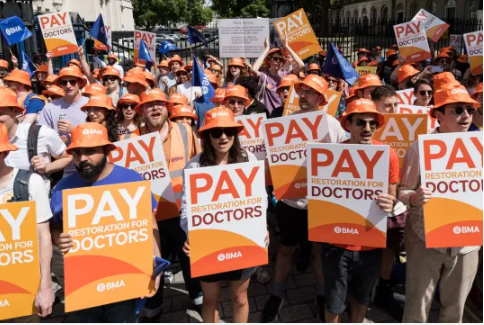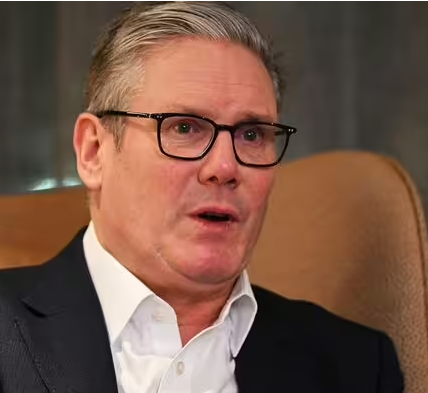
Junior doctors have voted to accept a government pay deal worth 22.3% on average over two years.
66% of junior doctors who voted in a referendum accepted the government’s pay deal, according to the British Medical Association (BMA).
The organisation thanked its members for voting in the referendum on social media.
In a statement, it said: ‘The BMA’s junior doctors committee (JDC) in England has accepted the government’s pay offer, with 66% of junior doctors voting in favour of the deal.
‘Outside the pay negotiations, the government has agreed that from September 18 ‘junior doctors’ across the UK will be known as ‘resident doctors’ to better reflect their expertise.
‘This follows a motion to the BMA’s annual policy making conference in 2023 when doctors voted in favour of a name change.’
This deal means junior doctors’ pay will rise between 3.71% and 5.05% – averaging 4.05% – on top of their existing pay award for 2023/24. This will be backdated to April 2023.
Each part of the pay scale will also be uplifted by 6%, plus £1,000, with an effective date of April 1 2024.

This new announcement means a doctor starting foundation training in the NHS will see base pay increase to £36,600, up from about £32,400.
And for a full-time doctor entering speciality training, they will have a basic pay rise from £43,900 to £49,900.
But the BMA junior doctors committee co-chairs, Dr Robert Laurenson and Dr Vivek Trivedi, hit out over the length of this wait.
They said: ‘It should never have taken so long to get here, but we have shown what can be accomplished with our determination and with a government willing to simply sit down and talk realistically about a path to pay restoration. One strike was one strike too many.
‘This deal marks the end of 15 years of pay erosion with the beginning of two years of modest above inflation pay rises. There is still a long way to go, with doctors remaining 20.8% in real terms behind where we were in 2008.
‘Mr Streeting has acknowledged our pay has fallen behind and has talked about a journey to pay restoration.
‘He believes the independent pay review body is the right vehicle for this, and if he is right then no doctor need strike over pay in future.
‘However, in the event the pay review body disappoints, he needs to be prepared for the consequences.
‘The resident doctors committee, as we will be called, will be using the next months to prepare to build on their success so that future cohorts of doctors never again need to see the kind of pay cuts we have.
‘We thank all doctors who have seen us through to this point by standing on picket lines and fighting for their worth. The campaign is not over, but we, and they, can be proud of how far we have come.’


